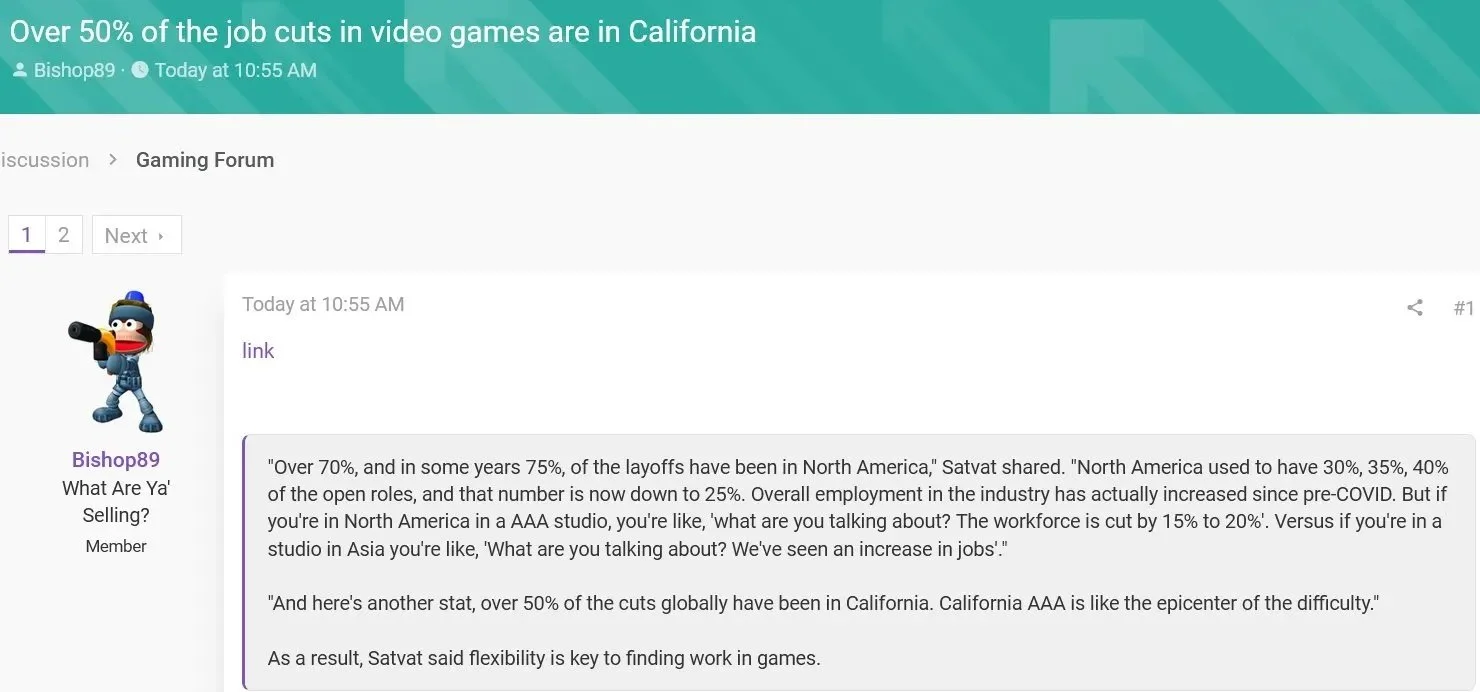The Great Flattening Comes for AAA Gaming
Corporate jargon has a funny way of rebranding bad news as innovation. First, they gave us “downsizing.” Then it was “right-sizing.” Now, according to the Wall Street Journal, we’ve entered “the Great Flattening.”
According to C-suite cloud dwellers, that means fewer managers, fewer administrative layers, and supposedly more nimble organizations.
In practice, it’s just a euphemism for firing people and dumping their responsibilities onto whoever’s left. Shareholders cheer, while the remaining managers wake up at 4:30 a.m. for another 18-hour day.
Joshua Fluke recently tore into the Great Flattening phenomenon. Companies boast about eliminating management layers, but the reality is that fewer managers are now forced to oversee more people. In the meantime, employees are told the only way to get noticed is to play the squeaky wheel; turning every minor accomplishment into a résumé bullet point because their overextended boss doesn’t have time to see the actual work.
And this trend isn’t confined to Silicon Valley’s corporate offices. Evidence suggests it’s creeping into video games.
Tencent executive Amir Satvat has spent years tracking the global games job market. His data paints a stark picture: While worldwide gaming employment has grown since before the COVID lockdowns, North American AAA studios, especially those in California, have been gutted.
Over half of global game layoffs were in California alone.
H/t EmpReb
What does this situation mean for AAA games?
It means we may be seeing the convergence of two crises:
The shareholder mandate to cut fat. Middle managers are increasingly seen as expendable. Their workloads are redistributed, creating overburdened supervisors who have less time to mentor, advocate, or even notice their teams
AAA’s geographic vulnerability. California was the stronghold of big-budget game development. If that sector is contracting while Asia grows, then AAA’s North American base is the weak link in an otherwise expanding industry.
Related: Video Games - 2 Centuries; 2 Media
The press likes to dress these cuts up as “eliminating bureaucracy” or “promoting autonomy.” But employees inside these companies know the reality: The aim is cutting payroll, not cultivating freedom. A flatter flowchart looks good to investors, but on the ground it breeds instability, burnout, and an office culture where loud self-promotion counts more than competence.
The irony is that this managerial collapse may accelerate what players already suspect: that AAA has lost its creative edge.
Games once required strong direction and clear milestones. Devs had to deliver quality on time.
Replace that structure with flattened hierarchies, and what do you get? Delays, scope creep, and projects collapsing under their own weight. See Suicide Squad: Kill the Justice League as Exhibit A.
And all the while, Asia is quietly eating AAA’s lunch.
Related: Earthion - Proof 2D Never Had to Die
Studios in Japan and China are expanding their workforces. In the orient, mployment is going up, not down. They are positioned to capitalize on the gaps California is opening.
Here is the part that will sting North American developers reading this post: The jobs aren’t gone; they’re just not here anymore.
Satvat’s data shows that flexibility, up to and including relocation, will increasingly be the price of staying in games. The era of cushy San Francisco salaries tied to blockbuster projects is fading fast.
For players, the outcome may be mixed. The Great Flattening could weaken AAA further, opening the door for small-to-mid-tier indie developers to capture attention with games that don’t cost $300 million to make.
We’ve already seen foreshadowings with the success of 2D titles like Shovel Knight, Cuphead, and Earthion. If AAA is busy chasing its tail, smaller teams can move faster and deliver the kinds of games the majors abandoned decades ago.
If AAA gaming follows the same pattern the rest of corporate America is stumbling through, we may look back on this moment as nothing less than the death of the blockbuster model.
Watch Josh Fluke’s video here:
For a unique action-adventure that busts through the dead end of twentieth-century mecha by merging the best of East and West, read my military SF epic Combat Frame XSeed!
Brian Niemeier is a best-selling novelist, editor, and Dragon Award winner with over a decade in newpub. For direct, in-person writing and editing insights, join his Patreon.



